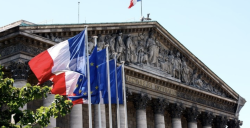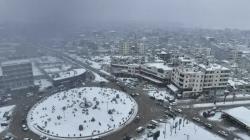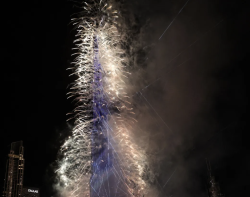Coronavirus: The US resistance to a continued lockdown
- 2020-04-27 14:11:42


 Pierre Rayer: Art, Science, and Happiness: The Universal Mission of Transmission to Future Generations through Patronage at the Louvre Abu Dhabi
Pierre Rayer: Art, Science, and Happiness: The Universal Mission of Transmission to Future Generations through Patronage at the Louvre Abu Dhabi Ahly crowned Super champions after dramatic extra-time win over Modern Future FC
Ahly crowned Super champions after dramatic extra-time win over Modern Future FC Yemeni Honey..A Development Wealth Threatened By Conflict And Climate Change
Yemeni Honey..A Development Wealth Threatened By Conflict And Climate Change California wildfires: Millions warned of possible power cut
California wildfires: Millions warned of possible power cut Central African rebels launch attacks near capital
Central African rebels launch attacks near capital French Foreign Ministry: Concern Over Yemen Situation, Support for Ongoing Diplomatic Efforts
French Foreign Ministry: Concern Over Yemen Situation, Support for Ongoing Diplomatic Efforts Syrian police officer killed in Aleppo suicide bombing on New Year’s Eve
Syrian police officer killed in Aleppo suicide bombing on New Year’s Eve New Year’s Eve 2026: President Sheikh Mohamed shares greetings and hopes for prosperity for all
New Year’s Eve 2026: President Sheikh Mohamed shares greetings and hopes for prosperity for all UAE FM Abdullah bin Zayed Holds Phone Call with U.S. Secretary of State Marco Rubio on Yemen Developments
UAE FM Abdullah bin Zayed Holds Phone Call with U.S. Secretary of State Marco Rubio on Yemen Developments UN Warns Against a Siege on Mukalla: Growing Humanitarian Concerns
UN Warns Against a Siege on Mukalla: Growing Humanitarian Concerns
